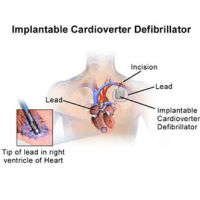Results from the WHO MONICA study were presented at EuroHeartCare 2015 which showed that poor sleep is associated with increased risk of heart attack and stroke. EuroHeartCare is the official annual meeting of the Council on Cardiovascular Nursing and Allied Professions (CCNAP) of the European Society of Cardiology (ESC).
Professor Valery Gafarov, professor of cardiology at the Russian Academy of Medical Sciences in Novosibirsk, Russia presented the research and highlighted the fact that 50 percent of total mortality among the population is from cardiovascular diseases and 80 percent of deaths from cardiovascular diseases are due to heart attack and stroke. He highlighted the need for engaging in intensive prevention of risk factors that lead to the development of cardiovascular diseases.
Prof Gafarov pointed out that sleep disorders have been found to be closely associated with cardiovascular diseases but till now, there has not been a population based cohort study that would examine the impact of this on heart attack or stroke. The MONICA (Multinational Monitoring of trends and determinants in Cardiovascular disease) and the “MONICA-psychosocial” substudy were conducted to investigate the relationship between sleep disturbances and the risk of heart attack or stroke in the long-term.
The study comprised of 657 men aged 25 to 64 years with no history of heart attack, stroke or diabetes in Novosibirsk, Russia. The study began in 1994 and sleep quality was assessed using the Jenkins Sleep Scale where sleeping disorder was so classified if the ratings were very bad, bad or poor. Heart attack and stroke cases were recorded for a period of 14 years.
The findings showed that 63 percent of the participants who suffered a heart attack had a sleeping disorder. Sleep disorders were also found to be associated with other negative states such as anxiety, depression, hostility and vital exhaustion. Between 5 and 14 years of follow up, men with a sleeping disorder were found to have a 2 to 2.6 times higher risk of myocardial infarction and a 1.5 to 4 times higher risk of stroke as compared to men without a sleeping disorder.
Prof Gafarov said: “Sleeping disorders were associated with greatly increased incidences of both heart attack and stroke. We also found that the rates of heart attack and stroke in men with sleeping disorders were related to the social gradient, with the highest incidences in those who were widowed or divorced, had not finished secondary school, and were engaged in medium to heavy manual labour.”
He pointed out that sleep should not be considered as a trivial issue as it can double the risk of heart attack and up to four times the risk of stroke. Sleep is a modifiable risk factor and thus guidelines should add this as a risk factor when recommending prevention strategies for cardiovascular disease. Most people require 7 to 8 hours of good quality sleep and those who are not achieving this should consult their healthcare providers.
Source: European Society of Cardiology
Image Credit: European Society of Cardiology



























